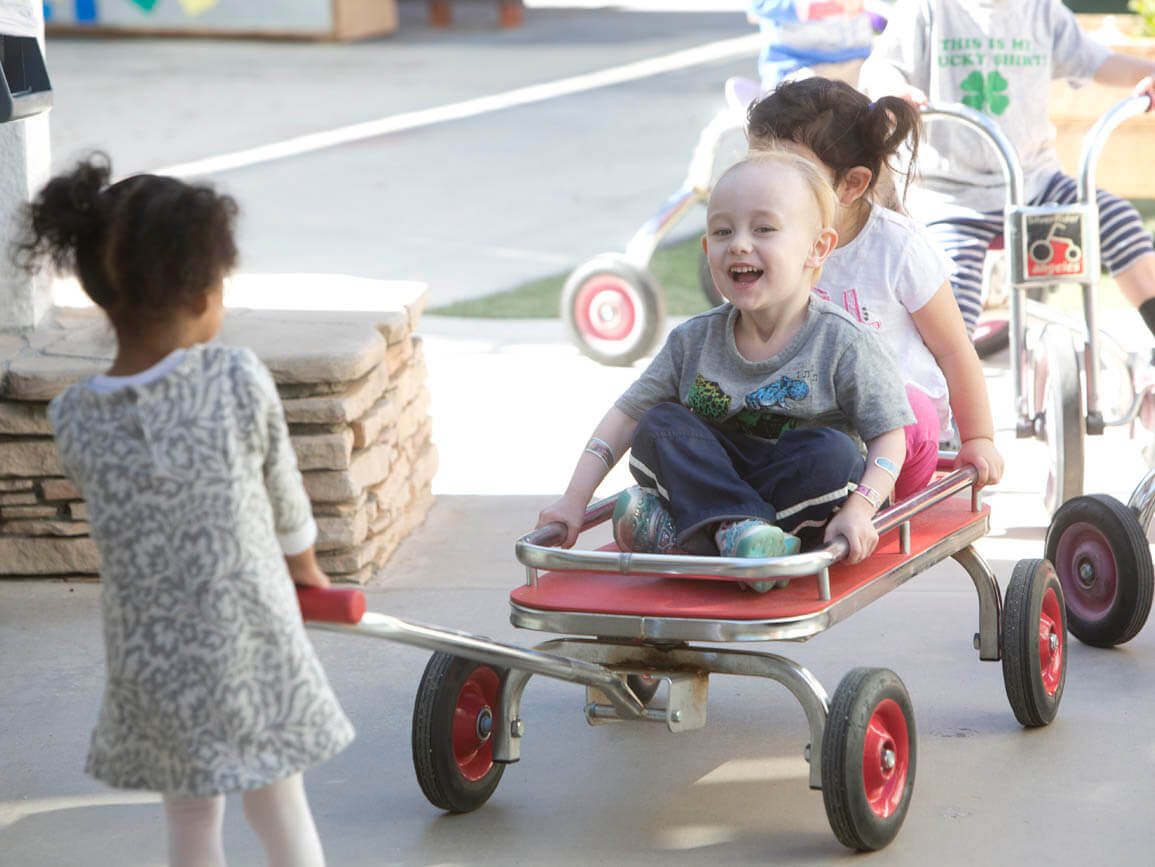Preschoolers might not yet have the life experiences or the cognitive abilities of adults, but they’re able to feel a full range of emotions, including anger. Depending on the situation and their temperament, preschoolers react to anger with behaviors ranging from a few tears to a full-on toddler tantrum. As a parent figuring out how to deal with tantrums, you might feel a range of emotions, such as empathy, confusion, or even frustration, in response to your child’s behavior.
How to Deal with Tantrums & Negative Preschooler Behavior
The Offensive Approach
So, how can you help your young child handle powerful emotions? First, try to see things from his or her perspective. Preschoolers have only lived on this planet for 36 to 48 months – not very long in the big scheme of things. Their limited life experience, verbal skills, and emotional development make it difficult for them to share, take turns, and understand another’s point of view.
Try to create a “yes” environment that reduces frustration and sets your child up for success. Young children, in general, have little control over their lives. Set up your home to allow for maximum independence and give your child choices whenever possible.
Defensive Strategy
The proactive strategies listed above can reduce feelings of anger for your child, but won’t entirely eliminate them. Frustrations are part of life for children and adults alike. Below are a few suggestions to help you and your child get through a toddler tantrum or “meltdown” moment successfully:
Establish safety. Safety is always the first priority. Gently restrain and move your child if you think he or she might hurt someone. If your child is exhibiting negative behavior in a public place, move to a quiet area.
Listen, just listen. Trying to talk a child out of a meltdown almost never works, and usually increases frustration. Instead, stay patient with your toddler and pay attention to his or her words and body language. Limit your speech and talk in a low, quiet voice. Offering empathy usually works well, for example, saying, “I can see how angry you are. That made you mad when Alex took your car.” Physical contact, such as a hug, can help, although some children need space when they’re angry. Respect this need, but stay nearby.
Offer a solution. Strong emotions, such as anger and sadness, can feel overwhelming to young children. A calm, empathetic response can help children learn that emotions won’t overpower them, but can be felt and dealt with. Once the most intense feelings have subsided, help children find solutions. Discovering solutions not only to the situation that initially caused frustration, but also to the feelings themselves aids preschool development. With support and practice, preschoolers can verbalize their perspective and their needs: “I feel mad because you took my car. Next time, ask first.” They can also learn to identify and seek out calming strategies, such as talking to an adult, getting a hug, drawing a picture of the situation, listening to music, or spending a few minutes alone.
Revisit the situation and offer feedback. Learning how to handle negative emotions isn’t a one-time event, but rather, the result of trial and error. Lessons learned about positive preschooler behavior are reinforced when children are able to reflect on their experiences. For example, after your child has calmed down, expressed his or her point of view, and found solutions, talk once more about what happened. Was she satisfied with the resolution? What would she do differently next time? Offer your perspective and encouragement. Try saying, for example, “You felt really mad and sad. You wanted to be by yourself for a while. Then you asked Max not to take your things. You told him how you felt. You solved your own problem. Nice work!”
Try to remember that your child isn’t trying to manipulate or embarrass you. A tantrum is a loss of control that can feel very frightening to a child. Over time, your consistently patient response will help facilitate preschool development of the social-emotional skills your child needs to feel, express, and handle difficult emotions appropriately.
- Get tips for fostering social-emotional development in your preschooler at home.
- From eye contact to follow-through, read our suggestions for disciplining your preschooler.
- Learn tactics for dealing with your toddler or preschooler’s backtalk.
- Hear our top parenting strategies for raising preschool boys.





